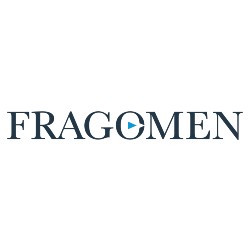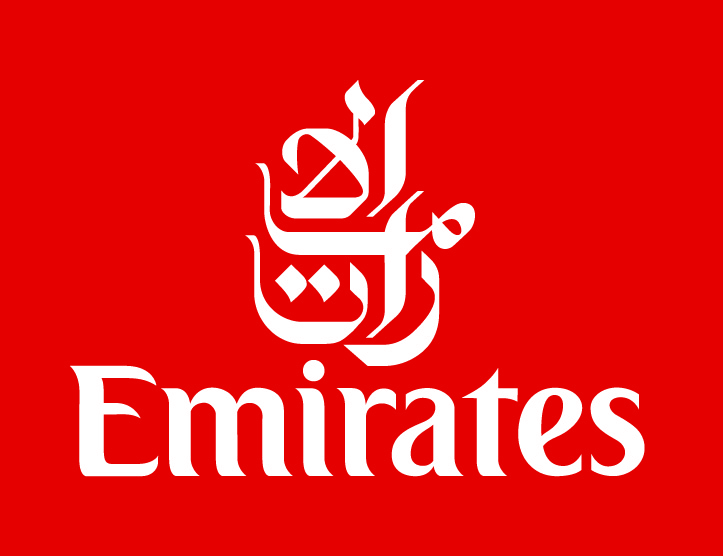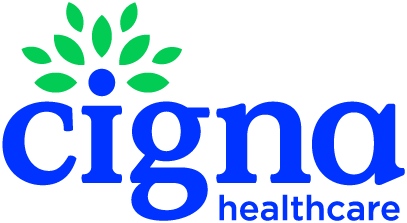IMMIGRATION AND OTHER DEVELOPMENTS IN THE MENA REGION
Date Posted:Mon, 11th Mar 2024

United Arab Emirates
01 February 2024 – Visa-Free Entry in Effect Between Mongolia and United Arab Emirates
Mongolian and United Arab Emirate nationals can now enter each other’s country visa exempt for tourism stays of up to 30 days. While UAE nationals entering Mongolia for non-tourism purposes still require a visa, it is currently unknown whether Mongolian nationals entering the United Arab Emirates for business will be visa exempt under this new visa waiver. All individuals must hold a passport with a minimum of six months validity from the intended date of entry, valid health insurance, and a return or on-ward ticket. Individuals traveling for other purposes, including study or work, should continue to obtain a relevant visa in advance.
01 February 2024 - Visa-Free Entry in Effect for Uzbekistan Nationals Enter-ing United Arab Emirates
Nationals of Uzbekistan can now enter the United Arab Emirates without a visa for tourism for stays of up to 30 days, following a signing of a Memorandum of Under-standing between the two countries. To enter without a visa, Uzbekistan nationals must have a biometric passport with a minimum of six months validity from the in-tended date of entry, valid health insurance and a return or onward ticket. Individuals traveling for all other purposes (including study or work) must continue to obtain the relevant visa in advance. UAE nationals have been able to enter Uzbekistan visa ex-empt for tourism since 2019 and UAE residents have been able to enter for tourism since 2020.
14 February 2024 – Temporary Practice Permit for Medical Professionals Launched
A new three-month permit, called a ‘permit to practice’, has been launched by the Dubai Health Authority (DHA) to allow visiting medical professionals to practice medicine in the United Arab Emirates. This non-renewable permit allows medical professionals to temporarily practice medicine (with certain limitations under supervision in licensed health facilities). Interested individuals cannot apply for the permit themselves; instead, the medical director holding the active license of the health facility must initiate the permit application process on behalf of the interested individual. Applications can be filed via the Sheryan portal (accessible on the DHA portal) using the health facility’s account. The medical director can only submit one application at a time. The ‘permit to practice’ does not guarantee automatic granting of a full professional license to practice medicine at a later date. Obtaining such a license is a separate process and is subject to the requirements set out in the Unified Professional Qualification Guide. In order to enter the United Arab Emirates, interested individuals must obtain a separate entry visa, as the ‘permit to practice’ only relates to an individual’s right to practice medicine. This program seeks to increase the number of foreign medical workers coming to the United Arab Emirates to fill local labor shortages and allows such individuals to first familiarize themselves with local health facilities and regulations prior to committing to obtaining a permanent professional license.
14 February 2024 – Labor Card Applications Now Require Proof of Unemploy-ment Insurance Subscription
Foreign nationals submitting an application for an initial or renewed labor card for the mainland must include the certificate showing that they have subscribed to the Invol-untary Loss of Employment (ILOE) insurance scheme (a type of unemployment insur-ance). Previously, individuals who either entered the United Arab Emirates on an Em-ployment Entry Permit or changed their immigration status in-country had up to four months to subscribe to the unemployment insurance scheme. Current labor card hold-ers who have not yet subscribed to an ILOE scheme still have the previous four-month deadline to subscribe to the scheme. To avoid any delay in the issuance of a labor card, as well as any potential fines, employers are advised to proactively ensure pro-spective and existing employees subscribe to the ILOE without delay.
19 February 2024 –Payment Method Discontinued for Employers’ Monthly Pension Contributions
The General Pension and Social Security Authority announced that employers can no longer use the cash deposit payment feature for monthly pension contributions into the bank accounts of employees from Gulf Cooperation Council countries employed in the United Arab Emirates. Instead, employers can either use a bank transfer or check issuance. The elimination of the cash deposit method is expected to make the monthly pension contribution easier to monitor.
22 February 2024 – Eligibility Conditions Relaxed for Real Estate Investor Golden Visa
Eligibility conditions have been relaxed for foreign national investors in Dubai seeking to obtain long-term residency through the Real Estate Investor category. Applicants are no longer required to pay a minimum down payment of AED 1,000,000 (approxi-mately USD 272,295) on their investment property. However, for mortgaged proper-ties, applicants must obtain a Non-Objection Certificate (NOC) from the bank confirming that a downpayment of any amount has been made. Applicants should note, how-ever, that to be eligible for the visa, the investment property value requirement con-tinues to be at least AED 2,000,000. The government has also eliminated the rule re-quiring applicants who were buying off-plan properties (where construction has not yet been completed and which is usually sold at a discounted rate) to be at least 50% completed prior to submitting their application. Instead, investors only need to obtain a NOC for their application from the developer, serving as confirmation of payment to-wards the off-plan property. Further, applicants buying completed properties can now use market value property valuation to meet the AED 2,000,000 requirement for the visa; previously, only the value of the Title Deed issued by the Dubai Land Department could be used to meet the requirement. These changes will make it more accessible for investors to participate in the real estate market.
SAUDI ARABIA
01 February 2024 - Temporary Entry Ban Lifted for Foreign Workers Who Failed to Return Prior to Exit Re-entry Permit Expiry
Foreign workers who left and then failed to re-enter Saudi Arabia prior to the expira-tion of their Exit and Re-entry Visa are now allowed to re-enter Saudi Arabia on a new work visa (sponsored either by a previous or current employer). Previously, such indi-viduals were subject to a three-year re-entry ban. This policy change will allow af-fected individuals to return to Saudi Arabia sooner than was previously the case, and may also allow employers to consider onboarding employees who otherwise would not have been able to access the country, giving employers greater long-term talent man-agement flexibility.
22 February 2024 - Increased Engineering-Sector Saudization Requirements from July 2024
Effective July 21, 2024, Saudization targets for private-sector businesses employing five or more accredited engineers will increase to 25 percent, up from the current 20 percent. This Saudization target applies to all engineering roles, as classified by the Ministry of Human Resources and Social Development (MHRSD). There are limited ex-ceptions. First, if an individual is not accredited, despite being an engineer by trade, and is not working in an engineering role, then they will not count towards a business’s Saudization percentages. Second, accredited Saudi engineers earning less than SAR 7,000 per month (approximately USD 1,850) do not count towards a business’s Sau-dization percentage. Affected employers should review their workforce composition in anticipation of this policy change and may need to restructure their talent manage-ment strategy in order to ensure compliance within the new Saudization requirements. Noncompliant employers will face penalties, including suspension of the MHRSD’s ser-vices (such as employee transfer services and work permit renewals).
09 February 2024 - Professional Registration Requirement Expanded to All Media Industry Workers
The Saudi Media Regulatory Authority now requires all workers in the media industry to obtain a media-professional registration certificate. As a result, foreign nationals currently working in Saudi Arabia in the media industry must now obtain this certifica-tion, although a deadline to obtain the certification has not yet been set. Further, for-eign nationals seeking to work in Saudi Arabia in the media industry must obtain this certification prior to applying for a work visa. Previously, only some media roles (in-cluding newspaper editors, photographers, journalists, and writers) required such cer-tification. Applications can be submitted via this platform. Licenses are free, but appli-cants must be at least 18 years of age to be eligible. This additional requirement is ex-pected to delay start dates for foreign national workers in the media industry, alt-hough exact delay estimates remain unclear.
BAHRAIN
08 February 2024 - Social Insurance Organization Digital Portal Updated
On February 4, 2024, Bahrain updated its Social Insurance Organization (SIO) digital portal – rebranded as Taminat.
The update has provided new features that are to assist employers track employee in-formation, including separating monthly insurance contributions and unemployment insurance contributions into two separate invoices.
As part of this update, certain services on the SIO portal were suspended from Janu-ary 19, 2024, to February 3, 2024.
To avoid penalties for non-compliance, companies should submit or update employee annual salary information on Taminat per the following timeline:
• standard employees – from February 14 to February 28, 2024; and
• optionally insured employees – from January 31 to February 15, 2024.
To access the updated portal, employers will need to reactivate their login credentials – which were deactivated as part of the upgrade process.
Employers are advised to adhere to the designated deadlines set forth by the authori-ties.
26 February 2024 - Sponsor Now Required to Convert Visit Visas to Work or Dependent Residence Visas
The Ministry of Nationality, Passports, and Residence Affairs announced that a spon-sor is now required for an individual to convert their visit visa to a work or dependent residence visa. The conversion fee is BD 250 (approximately USD 665) and the spon-sor for the work or dependent residence visa must be the same as the sponsor of the visit visa. Previously, individuals could convert their visit visa without a sponsor for a fee of BHD 60 (approximately USD 160). The increase in fees and additional require-ment to obtain a sponsor for the work or dependent residence visa aligns with the government’s initiative to encourage employers to hire from the local population. Ad-ditionally, this new requirement should allow for further oversight and transparency by the government, reducing potential exploitation of workers.
QATAR
16 February 2024 - School Registration Now Required for Dependent Family Residence Permit Renewals for Children Not Studying in Qatari Schools; Doc-umentary Requirements Further Clarified
Renewal applications for Dependent Family Residence Permits for dependent children, age six to 18, who are not enrolled in a Qatar-based school (including those studying abroad and those being home-schooled) now require preliminary registration of the dependent child’s education status with the Ministry of Education and Higher Education (MOEHE). This follows a similar rule introduced in late 2023 which applied to dependent children studying at Qatari schools. Foreign nationals must have their registration finalized with the MOEHE prior to commencing the permit renewal process and must provide evidence of the completed registration as part of their renewal application. Sponsors should register their dependent’s education status on the MOEHE online platform, with processing time expected to take approximately five to 10 business days. At this time, applicants for initial Dependent Family Residence Permits do not need to include the school registration.
Additionally, the government has recently clarified the required documentation for the registration process, including (among other items): a copy of the dependent applicant’s Qatar identification card and passport, and certified Letters of Enrollment and Education from their school (for both current and past school years). Affected individuals should reach out to an immigration professional if they have any questions about the process.
KUWAIT
07 February 2024 - Resumption of Issuance of Family Residence Visas with Amended Eligibility Conditions
Effective January 28, 2024, Kuwait has significantly expanded the scope of eligibility for family visas, and now includes the spouses and children of a wide range of skilled foreign nationals residing in Kuwait (subject to education and minimum salary require-ments). A principal applicant’s other family members, including their parents and sib-lings, are currently not eligible for inclusion under a family visa application.
The Family Residence Visa is a renewable multiple-entry visa that allows dependents to reside in Kuwait for up to three years.
OMAN
21 February 2024 - Increased Social Security Contribution Rate for Omani Nationals
Effective immediately, and backdated to January 1, 2024, contribution rates for na-tionals of Oman currently employed and covered by the unified protection system in the United Arab Emirates have increased. Specifically, the Oman Social Protection Fund increased the contribution rate to 18.5%, up from 17.5%. Employers in both public and private sectors will need to pay 11% of the 18.5% contribution rate, up from 10.5%, and the insured Omani national will need to pay the remaining 7.5% of the contribution rate, up from 7%. The pensionable salary continues to include both basic salary and fixed allowances, such as housing and travel allowances.
EGYPT
14 February 2024 - Involvement in Green Hydrogen Projects Allows Access to more Foreign Workers
Companies involved in any eligible Egyptian green hydrogen production project are now able to increase the percent of their workforce that is comprised of foreign nation-als up to 30 percent for the first 10 years after signing a green hydrogen project agreement. Generally, in Egypt only 10 percent of a company’s workforce can be made up of foreign nationals. To qualify for this incentive (as well as other incentives under the green hydrogen production scheme), a company must be working on a green hy-drogen project that meets relevant criteria, including: the project must be operational within five years of signing the project agreement; at least 70 percent of the project must be financed with foreign currency; and the project must include a Corporate So-cial Responsibility plan for local community development, among other require-ments. Eligible employers can now hire proportionately more foreign nationals, provid-ing flexibility with respect to talent management strategies, including a greater ability to acquire and retain individuals with project-relevant specialized skills.
ABOUT FRAGOMEN
Fragomen is a leading firm dedicated to immigration services worldwide. The firm has nearly 5,500 professionals and staff in 62 offices located in the Americas, Asia Pacific and EMEA. Overall, Fragomen offers support in more than 170 countries.
We are structured to support all aspects of global immigration, including strategic plan-ning, efficiency, quality management, compliance, government relations, reporting, and case management and processing. These capabilities allow us to represent a broad range of companies, organizations and individuals, working in partnership with clients to facilitate the transfer of employees worldwide.
Our Middle East and North Africa (MENA) practice also provides corporate services, includ-ing social security assistance, end-to-end corporate setup, corporate secretarial services, corporate amendments, restructuring activities and more. Our corporate services and im-migration professionals have extensive experience working with multinational businesses, conglomerates, local employers, start-ups and individual investors. We have a deep un-derstanding of the MENA region and maintain strong professional relationships with rele-vant authorities.
To learn more about how we can assist you, please visit our website at www.fragomen.com or contact us at middleeast@fragomen.com.











